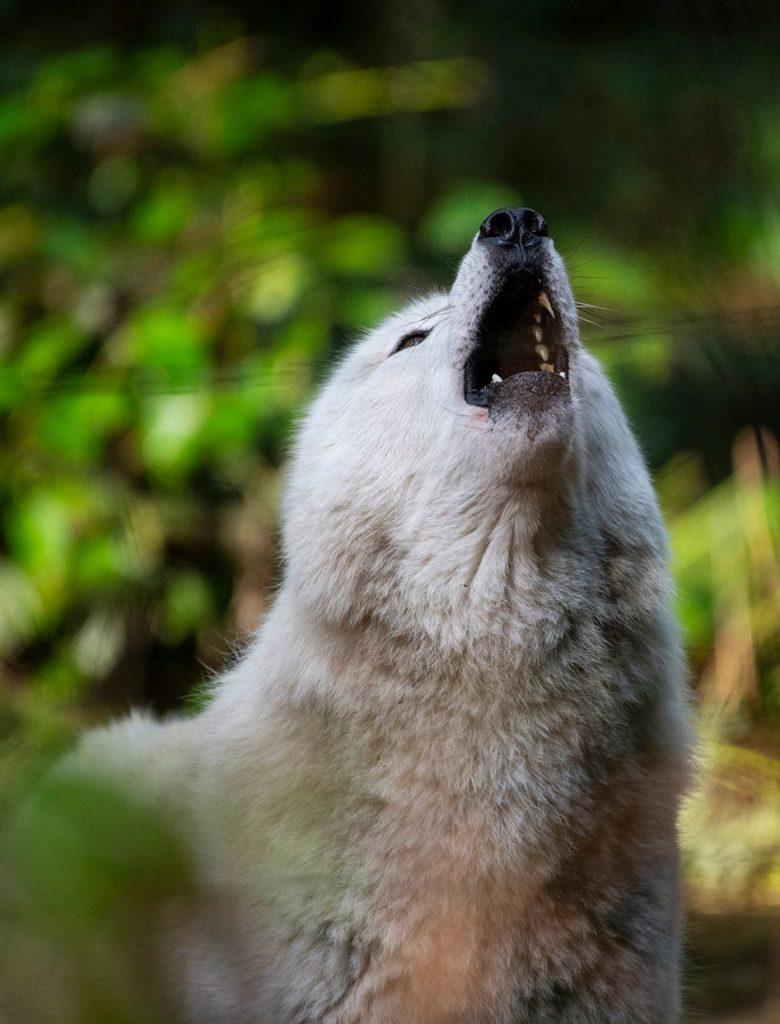Will the wolves be howling at the moon?
If you look to the sky on Jan. 25, you will see a full moon traditionally known as the “Wolf” Moon.
According to The Old Farmer’s Almanac, the names for full moons come from a number of places, including Native American groups, colonial Americans or other traditional North American names passed down through generations.
The name of the January moon is derived from wolves, which tend to howl more often in the winter months.
So why do wolves howl? To find their pack members and communicate with them in many different ways, bond them, and to defend their territory.
“As a child you hear tales that wolves howl at the moon,” says keeper Haley. “Truth is, nobody knows if they are actually howling at the moon. But they are nocturnal creatures, meaning they’re active and awake at night, and they do raise their heads when they howl. It helps carry the sound further.”

Keeper Haley says the three gray wolves at Northwest Trek often howl, helping to bond the pack and sometimes just for play. As for whether they plan to howl at the full moon, that’s anyone’s guess.